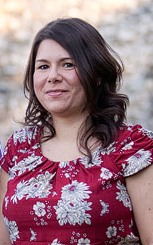Full Name: Dr Claire Stone
Job Title: Quality Manager
Company: i2 Analytical Ltd
Having decided at an early age that I wanted to work in analytical sciences in the environmental field, I was lucky enough to undertake an Analytical and Environmental Chemistry degree. Having completed my degree, I then studied for a PhD in Analytical Chemistry and through this work and post-doctoral work specialised in metals analysis, quality control/assurance and other inorganic analytical techniques. Having joined i2 in 2006, I first worked I was first employed as a method development chemist, I then went on to run the inorganic analysis departments, before becoming Quality Manager in 2009.
What or who inspired you to join the geotechnical industry?
It’s hard to say – I’ve wanted to be involved in this type of work for so long I don’t think I can honestly remember who or what first inspired me to do it!
What does a typical day entail?
As well as managing my Quality team to ensure all our laboratories are maintaining our accreditation and extending our scope of testing to ISO 17025 and MCERTS, I also work closely with our Technical teams to develop novel and innovative solutions both in terms of analytical methods and techniques. Being a senior chemist, I also speak to our customers about any challenging sites or problems they have and look to work with them to produce a cost effective analysis proposition.
Are there any projects which you’re particularly proud to have been a part of?
The “asbestos dustiness” method development and accreditation of this particular technique is the project I’m most proud of. This is an innovative solution to provide additional lines of evidence for customers who may face challenges when dealing with asbestos contaminated sites.
What are the most challenging aspects of your role?
Ensuring the highest quality standards are met whilst ensuring that the work carried out by the whole of i2 is commercially fit for purpose.
What AGS Working Group(s) are you a Member of and what are your current focuses?
I’m a member of both the Laboratories Working Group and the Contaminated Land Working Group and my current focus is on bringing more environmental chemistry input to the Laboratories group and ensuring that labs are well represented on the Contaminated Land group. Personally I’m looking at the challenges of deviating samples in respect to both geotechnical and geo-environmental analysis – an analysis is only as good as the sample provided!
What do you enjoy most about being an AGS Member?
The AGS events are always enjoyable and I was lucky enough to speak at one of them – having a presentation really well received by such a diverse audience has certainly made these events my favourite aspect of being an AGS member.
What do you find beneficial about being an AGS Member?
Being involved with a wide range of disciplines working in the geotechnical sector means that both personally and professionally strong relationships can develop and through collaboration more opportunities and challenges present themselves.
Why do you feel the AGS is important to the industry?
The AGS provides a focal group to work through a variety of challenges within the sector and I think the fact that it’s run by the members for the members gives it a great strength.
What changes would you like to see implemented in the geotechnical industry?
I would like to see more practical cross discipline experience in the people involved in the industry. I think that by appreciating and understanding the impact of others work and roles the whole industry would benefit.
